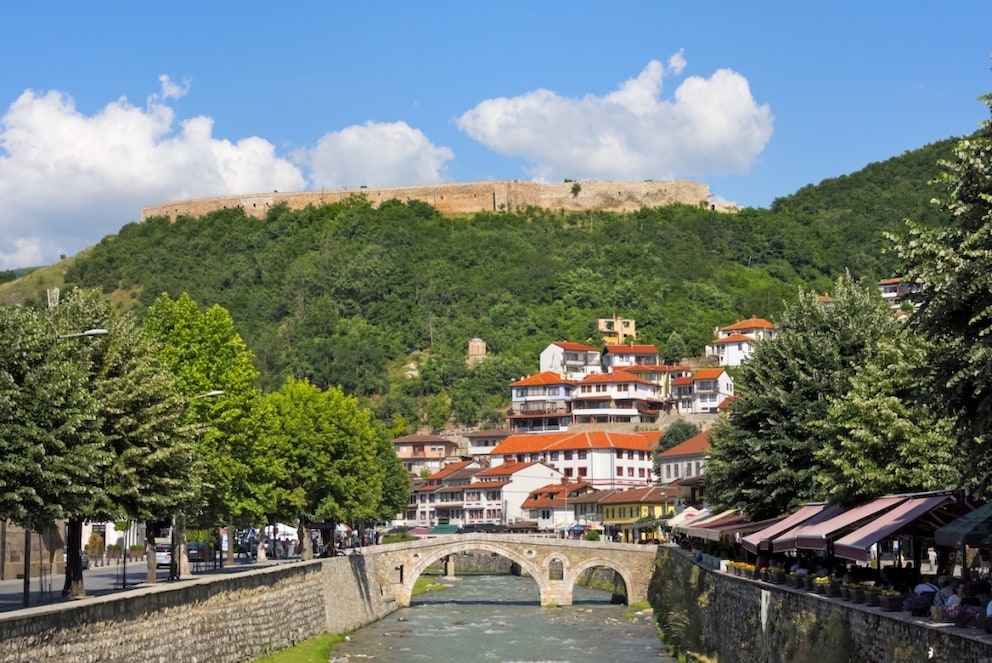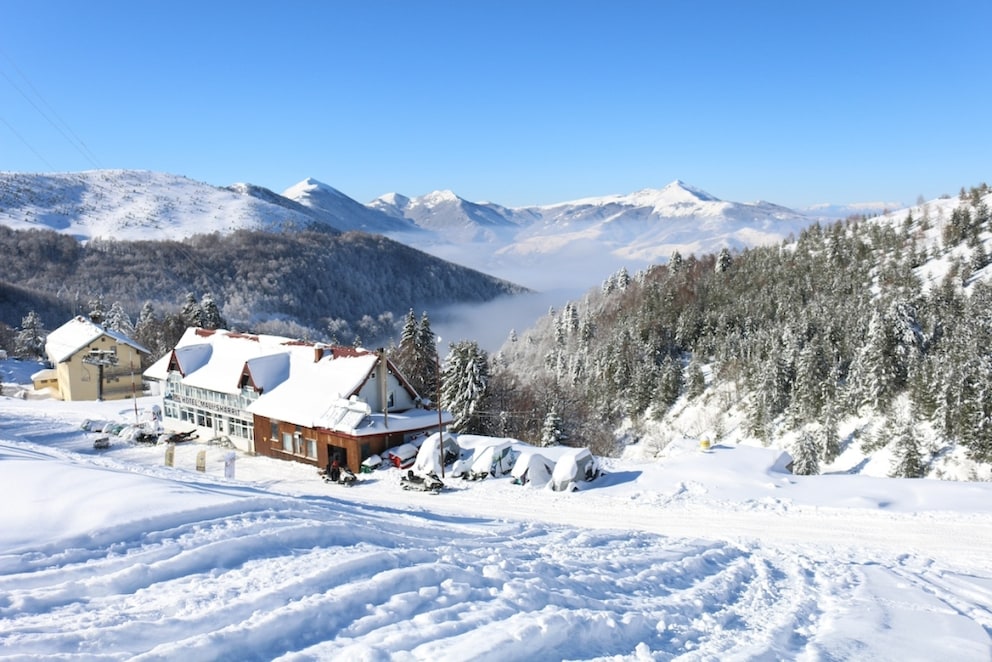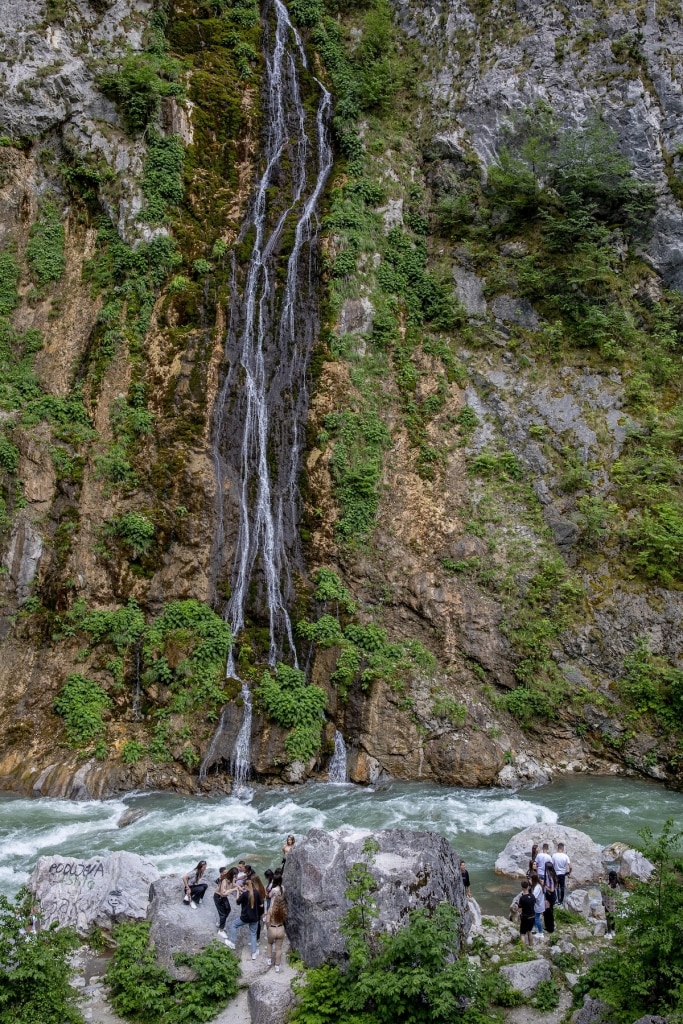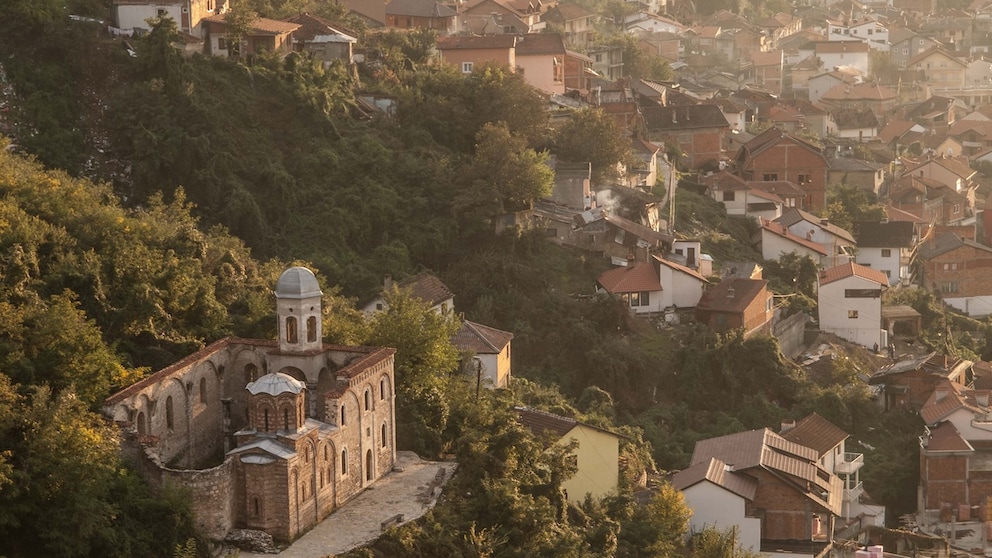March 10, 2025, 9:28 am | Read time: 6 minutes
Despite its years of independence, Kosovo is often overlooked as a travel destination. Yet the country on the Balkan Peninsula has a lot to offer, especially for nature lovers. TRAVELBOOK reveals what makes Kosovo so special and presents a selection of the most beautiful places to visit.
The Republic of Kosovo surprises with its impressive diversity, from steep mountain landscapes and challenging hiking trails to clear lakes. Unspoiled nature and breathtaking views make this small country a hidden gem for outdoor fans. But it’s not just the landscape that invites you to explore — Kosovo’s cities are also well worth a visit.
Overview of
Vacation in the Balkan Region
Kosovo is located in south-eastern Europe on the Balkan Peninsula and borders Serbia, Montenegro, Albania, and North Macedonia. With a population of around 1.6 million (as of 2024), the country is one of the comparatively small states in the Balkans. Kosovo declared its independence from Serbia in 2008. According to the German Federal Ministry for Economic Cooperation and Development (BMZ), 117 countries have recognized Kosovo’s independence to date, including Germany.
Since its independence, the country has made impressive steps forward, but the economic situation remains challenging, political tensions persist, and full international recognition has not yet been achieved. Nevertheless, the small republic already has a lot to offer travelers. It is precisely its unspoiled nature that makes it a special vacation destination. Mountain landscapes, historic towns, and hospitality are what make Kosovo so special.
The Most Beautiful Places in Kosovo
Prizren — the Cultural Capital of Kosovo
Prizren, in the south of the country, is a charming city. The cultural center of Kosovo is impressive because of its picturesque old town, which is characterized by buildings in Ottoman and Byzantine styles. According to “kosovo-urlaub.de,” the old Ottoman stone bridge (Ura e gurit), from which you have a great view of the River Lumbardh, can be found here between winding cobbled streets and small cafés. The fortress of Prizren (Kalaja e Prizrenit) is also located slightly above the city and can be reached directly via a footpath from the old town. Built in the 11th century, the former defense base today offers a panoramic view of the town and the surrounding Sharr Mountains.

Brezovica — Skiing with Alpine Flair
Brezovica is a real gem for winter sports fans. In the Sharr Mountains, close to the border with North Macedonia, at an altitude of up to 2500 meters, the ski resort is one of the best-known in the country. There are various slopes, ski lifts, hotels, and traditional mountain huts, reminiscent of a vacation in the Alps — but much cheaper. The ideal time to ski in Brezovica is between November and April, as the altitude guarantees plenty of snow at this time. The area can also be explored on extensive hiking tours in spring. According to “brezovica ski,” there are meadows with mountain flowers, medicinal herbs, and rare species of game.

Rugova Gorge — a Natural Wonder in the West of Kosovo
A natural wonder of Kosovo is the Rugova Gorge (Gryka e Rugovës) west of Peja (Peć), near the border with Montenegro. If you are looking for a dose of thrills, this is the place for you. With a length of 25 kilometers and a depth of 1000 meters, the Rugova Gorge is one of the deepest and longest gorges in the world, according to “abenteueralbanien.” In Germany, the Bavarian Partnachklamm is the closest comparison to the mountain canyon, although the Rugova Gorge seems much more dramatic. As part of the Bjeshkët e Nemuna National Park, there are numerous hiking trails around the gorge, some of which can be explored on guided tours. The waterfalls, including the 25-metre-high White-Drin waterfall, are also among the highlights of the area.

Gadime Cave — Mystical Stalactite Cave
Around half an hour from the capital, Pristina, lies the stalactite cave Gadime (Shpella e Gadimës). According to “kosovo-urlaub,” this relatively unknown cave was only discovered in the 1960s and offers fascinating natural spectacles. Various stalactite formations, marble crystal walls, and crystal-clear pools of water can be explored on guided tours. If you are not very claustrophobic, you can take a tour through the cave, as there are mostly wide passages.
Leqinat Lake — Hidden Mountain Lake
Lake Leqinat (Liqeni i Kuqishtës) is a real eye-catcher. Close to the village of Kuqishtë in western Kosovo, the lake is hidden between the Bjeshkët e Nemuna (Enchanted Mountains). With its clean, emerald-green water, the glacial lake is not only a popular photo motif for hikers but is also ideal for swimming — however, due to its location in the mountains, the water is usually very cold. The lake can only be reached on foot. A direct hiking trail leads from Kuqishtë to the mountain lake in around 2 to 3 hours.
Safety in Kosovo
Kosovo is considered a safe destination for tourists, especially in the cities of Pristina, Peja, and Prizren. However, anyone setting off on hiking tours in remote areas should always stay on the signposted paths, as there may still be some undiscovered mines from the Kosovo war.
Caution is also advised in road traffic, as many roads are poorly constructed or damaged. In addition, the Federal Foreign Office advises against traveling to the north of Kosovo due to the tense political situation, especially in the areas of Zubin Potok, Leposavic, Zvecan, and North Mitrovica. For this reason, it is also advisable to avoid political discussions.

For multi-day tours The best tips and routes for hiking in the Harz Mountains

Unique backdrop Hiking in Leipzig’s Neuseenland

Hidden Gem in Greece It’s as Beautiful Here as on Crete – Only Less Crowded
Travel to Kosovo
The quickest way to travel to Kosovo is by plane from Germany. There are several direct flights to Pristina that take around two hours. The capital of Kosovo is also worth a visit and is known for its architecture and culture.
Alternatively, it is possible to travel by car, for example, via Austria, Slovenia, Croatia, and either Serbia or Bosnia and Montenegro — however, you should expect the journey to take around 22 hours.



